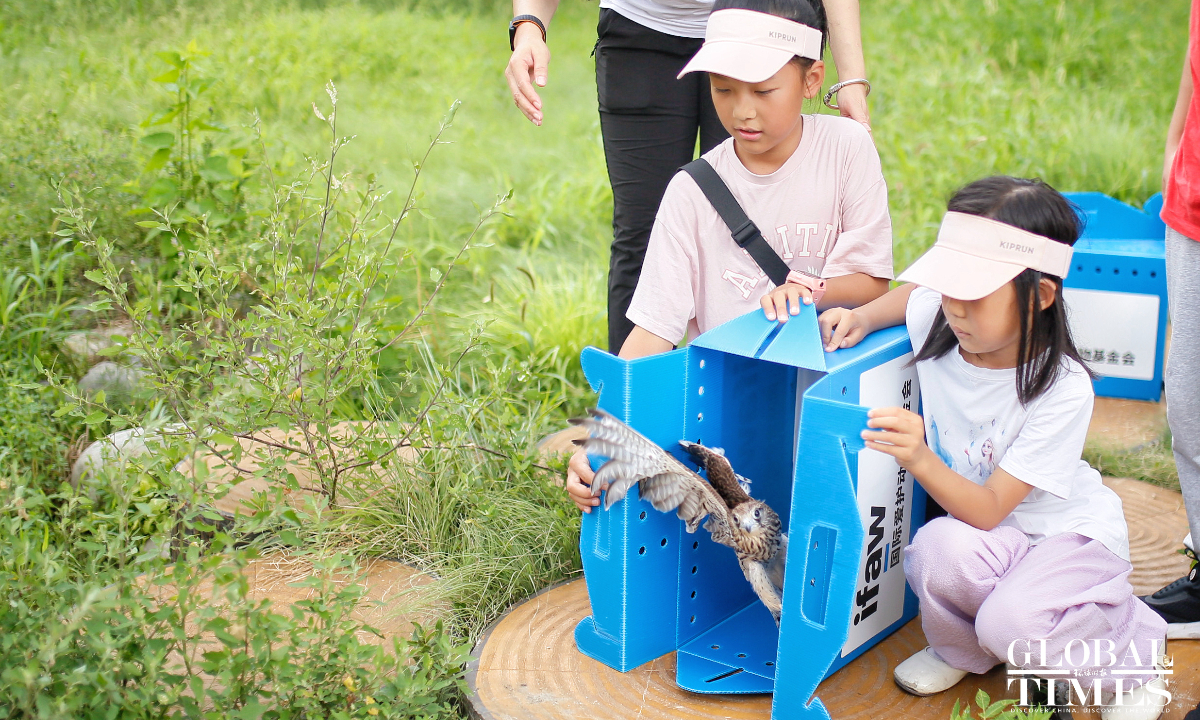
Photo: VCG
The
mk Cyberspace Administration of China (CAC) has strictly cracked down on online activities that infringe upon the legitimate rights and interests of minors, as a WeChat account affiliated with CAC revealed several cases related to such violations.
The year 2024 marks the implementation of the Regulations on the Protection of Minors in Cyberspace. The CAC places significant emphasis on protecting minors online and actively cracks down on violations of their rights in cyberspace.
Inspections revealed that some accounts on short video platforms aggregated "absurd animations," which contained excessive violent and horrifying content. CAC imposed administrative penalties on the relevant platforms and shut down several accounts posting such inappropriate animations.
It was discovered that some users maliciously posted vulgar emojis and inappropriate messages such as "looking for locals" in the comment sections of pages where minors shared their daily lives, attempting to sexually entice minors. The authorities have guided websites and platforms to continuously strengthen efforts in identifying and cracking down on various types of coded language used to violate regulations, and has thoroughly removed illegal external link information involving minors. Relevant illegal activity clues have been handed over to police.
Based on tips from internet users, some accounts were found to frequently post harmful content involving minors, fabricating so-called "internet celebrity children" to illegally drive traffic and profit.
Examples include staging videos of school bullying with minors, selling items like so-called "bad boy shoes," and using sensational topics such as minors getting married or pregnant—such as posting "A day in the life of a 2007-born mom raising her child in her in-laws' home." Additionally, some minors were directed to act out inappropriate contents, such as "The art of being a mean girl" or "Earning more money at the cost of your conscience," to promote and sell products.
The CAC have taken action against these accounts in accordance with the law, including measures such as removing followers, revoking monetization privileges, and shutting down the accounts.
Authorities also discovered that certain livestream channels were selling anime- and game-themed blind box cards, encouraging minors to overspend. Furthermore, some users leveraged new technologies and applications to generate inappropriate content involving minors.
CAC imposed strict penalties on problematic platforms and accounts, while urging AI service platforms to conduct self-inspections and establish robust mechanisms to protect minors online.
Additionally, based on public reports, some children's smartwatches were found to spread content harmful to the physical and mental health of minors via built-in voice Q&A services. CAC promptly summoned the companies involved in producing these devices, urging a comprehensive review of both pre-installed and third-party app content. Administrative penalties were imposed on the violating enterprises.
In addressing various online issues that harm minors' physical and mental well-being, CAC will continue to intensify governance efforts, enforce platform accountability, and implement effective measures to curb the hidden spread of illegal and harmful information. Strict penalties will be imposed on problematic platforms and accounts.
The authorities also urge the participation of all sectors of society in protecting minors online, working together to create a healthy and safe online environment.
Global Times


 Chinese rescue teams leave Myanmar after completing mission
Chinese rescue teams leave Myanmar after completing mission Rise of Chinese swimming vivid interpretation of Olympic spirit: Global Times editorial
Rise of Chinese swimming vivid interpretation of Olympic spirit: Global Times editorial Eight rescued common kestrels soar back into sky in Beijing on National Ecology Day
Eight rescued common kestrels soar back into sky in Beijing on National Ecology Day Eight rescued common kestrels soar back into sky in Beijing on National Ecology Day
Eight rescued common kestrels soar back into sky in Beijing on National Ecology Day